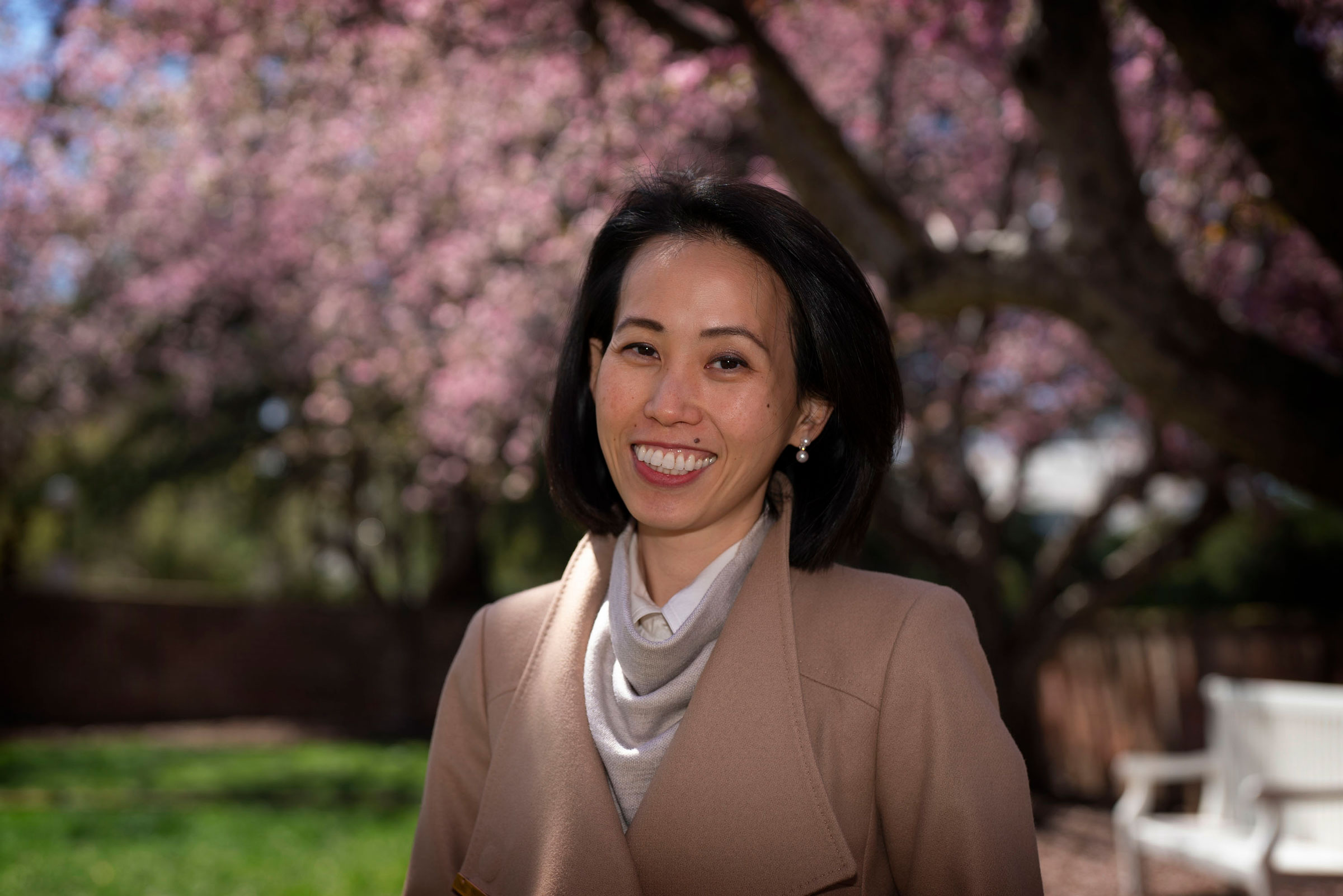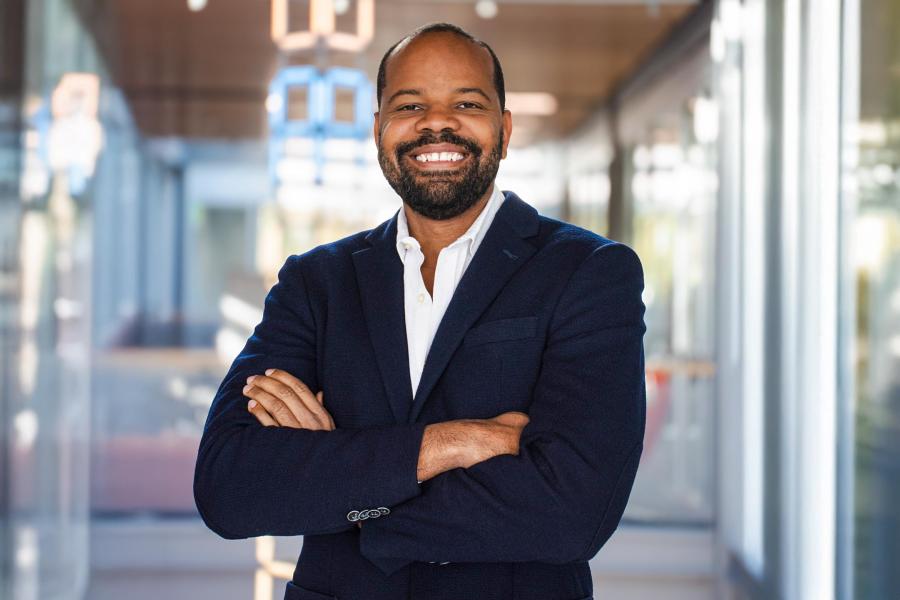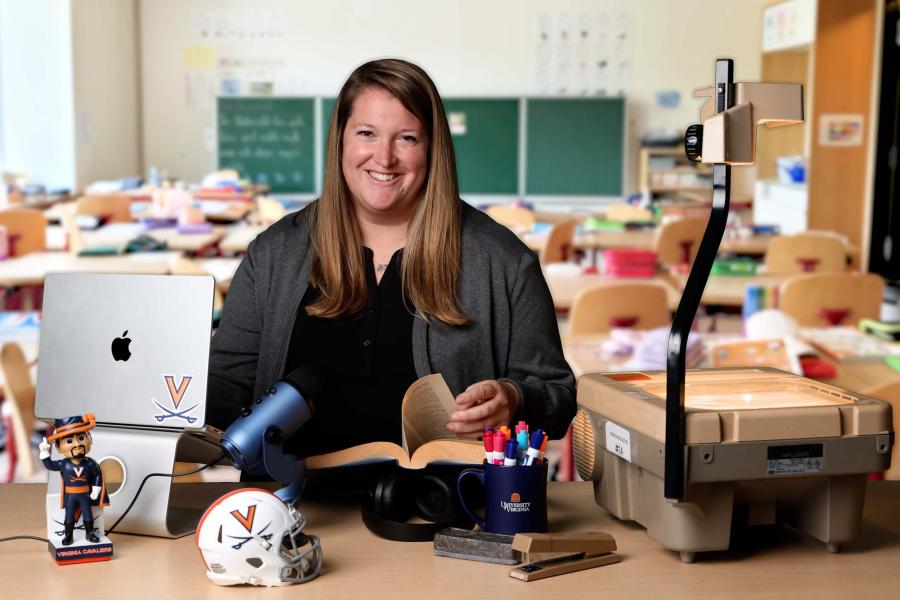“I have always believed in the idea of dedication, commitment and service to one’s country, and I have always been curious about the best way to train and educate the next generation of leaders,” Chou said. “While at Northwestern, I started to see a lot of bright students in business school go to the private sector instead of into public service, and that to me was a lost opportunity. The private sector can accomplish a lot of things, but public policy can change the course of a country within a year. We need to educate our brightest to be in those positions in order for us to have a better world.”
That is how Chou ended up at the Batten School in 2012, where she felt that she could thrive as an educator, teach the next generation of public policy leaders, and continue her research in behavioral science and leadership.
More than a decade later, that has proven true. Chou’s courses, such as the Behavioral Sciences for Civic Leadership that she developed and describes as “very close to my heart,” have proven immensely popular with students.
Her research has received similar acclaim, focusing on topics such as the “contagious” effect of betrayal, differences between group-thinking rationale and individual rationale, or improving commitment to prosocial causes in virtual forums.
In 2019, one of her papers gained attention in Harvard Business Review by highlighting how humans naturally perceive negativity or naysaying as power, using the 2016 presidential debates – with candidate identifiers removed – as a case study. The power to negate or be negative has a strong hold on our psychology.
“Like all social animals, we want to very quickly figure out who is the leader and how to structure the team. We pay attention to any behaviors or signals that may indicate that this person has power,” Chou said. “When people are in power, it enables them to be more critical and negate an issue, person or opinion, even or especially when there are no demonstrable answers.”
That last study brings up an important point. Chou doesn’t want to simply educate strong leaders. She wants to educate a generation of strong, ethical leaders – leaders who understand when saying no is valuable and necessary, and when negativity is not helpful, leaders who see the ethical and social implications of their actions and take those ripple effects seriously.
As she put it in a podcast interview, “I want to develop future leaders who can lead not just effectively, but empathically and ethically.” Chou’s students spend a lot of time extensively analyzing case studies and discussing the ethical implications of different decisions, as well as working in groups in mock negotiations and other real-time scenarios.
“Part of leadership is knowing how to react in the heat of the moment,” Chou said. “Decisions can be different [under pressure] or fall prey to biases, and to help students see that, I need to put them in those situations. I give them a framework, throw them into the deep end and then we talk about strategies, biases and all we learned.”
Students past and present praise those methods. Third-year Batten School undergraduate student Katie Driebe loved being able to learn through firsthand experience, and said Chou usually had “a kind of twist at the end” that always made her students think.
“It was kind of like being in a lab, in the sense that you would immediately get to practice what you learned about,” Driebe said.
“I learned skills on how to step up and step back as a leader and the critical errors leaders can make,” said public policy graduate student Victoria Hume, who has taken Chou’s courses and worked with her as a research assistant.
Hume now works as a Presidential Management Fellow, part of a selective two-year training and leadership development program run by the U.S. government.
“Professor Chou helped me feel capable and confident to take on this professional career,” Hume said. “She embodies a strong female leader who uses her platform to raise up others, and she taught me how I can do the same.”
Another alumnus of Chou’s courses, Brendan Boler, directs the UVA Career Center and is an assistant professor in the Batten School. Boler took a Psychology for Leadership course with Chou while pursuing a doctorate at UVA’s Darden School of Business.
“Not only is Eileen an outstanding professor and researcher, but she is also a kind and approachable mentor. I always felt comfortable seeking her advice and feedback, and she was always willing to help,” he said. “I have learned so much from her and am honored to have had the opportunity to continue working with her. Her passion for psychology and leadership is contagious, and I am inspired by her dedication to advancing knowledge in the field.”






